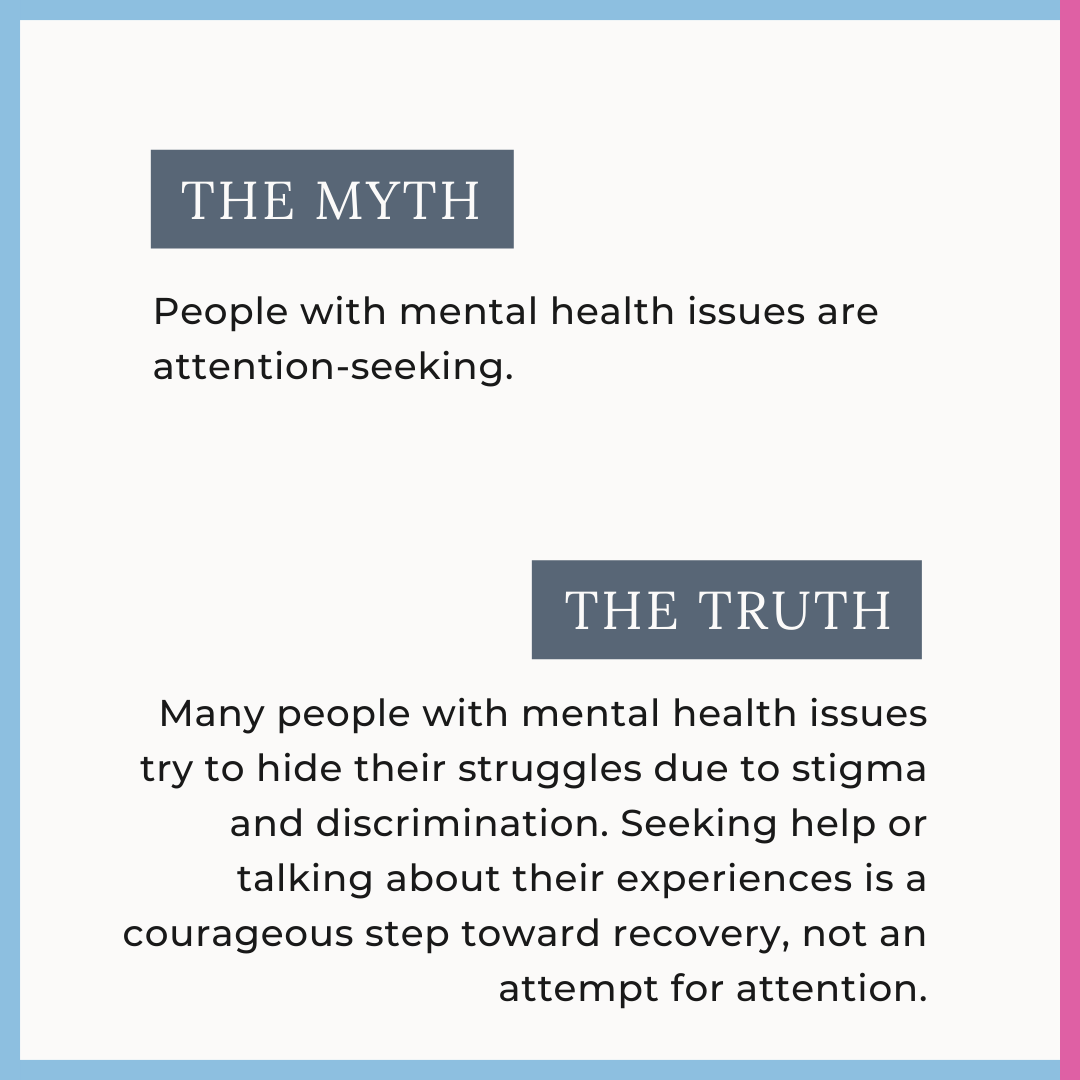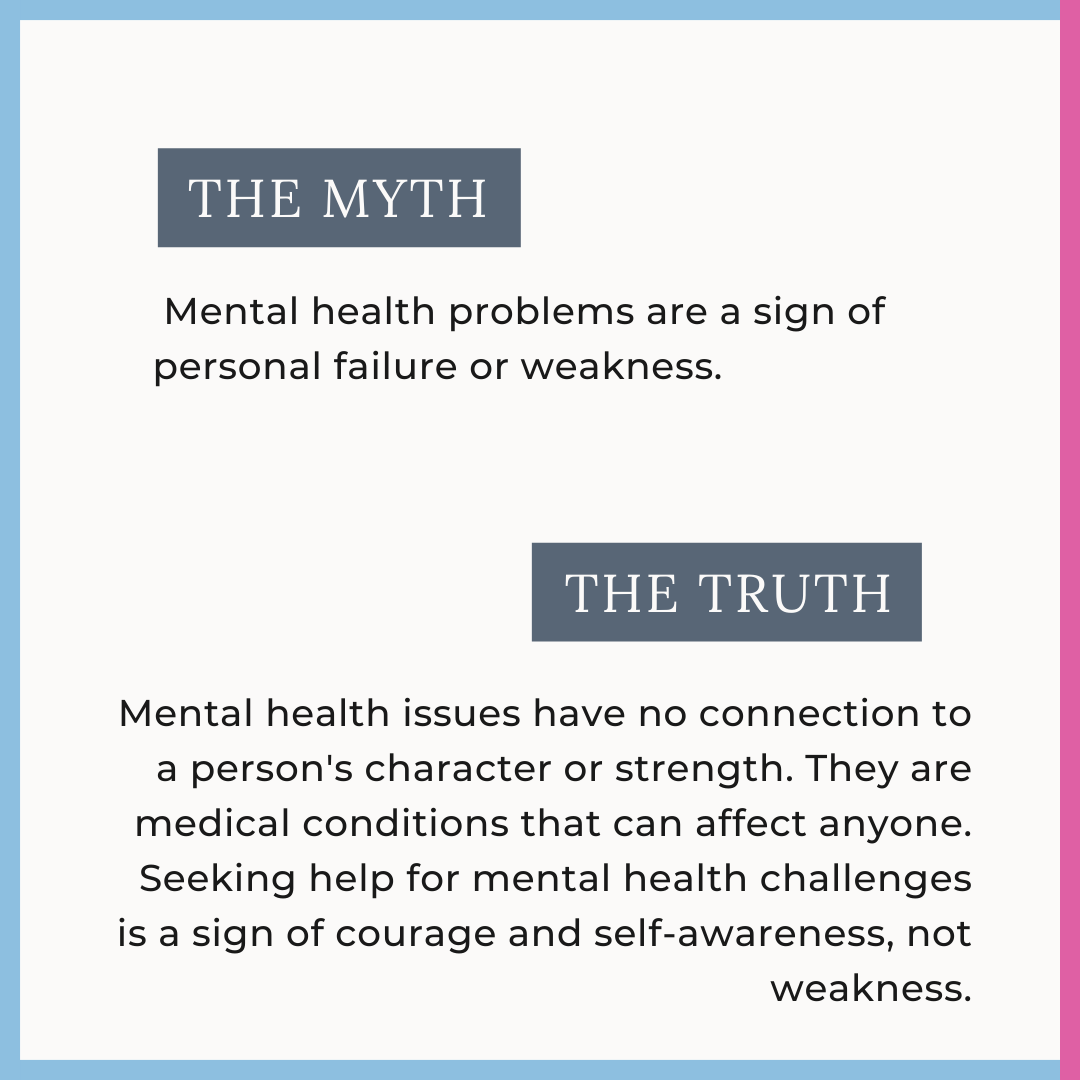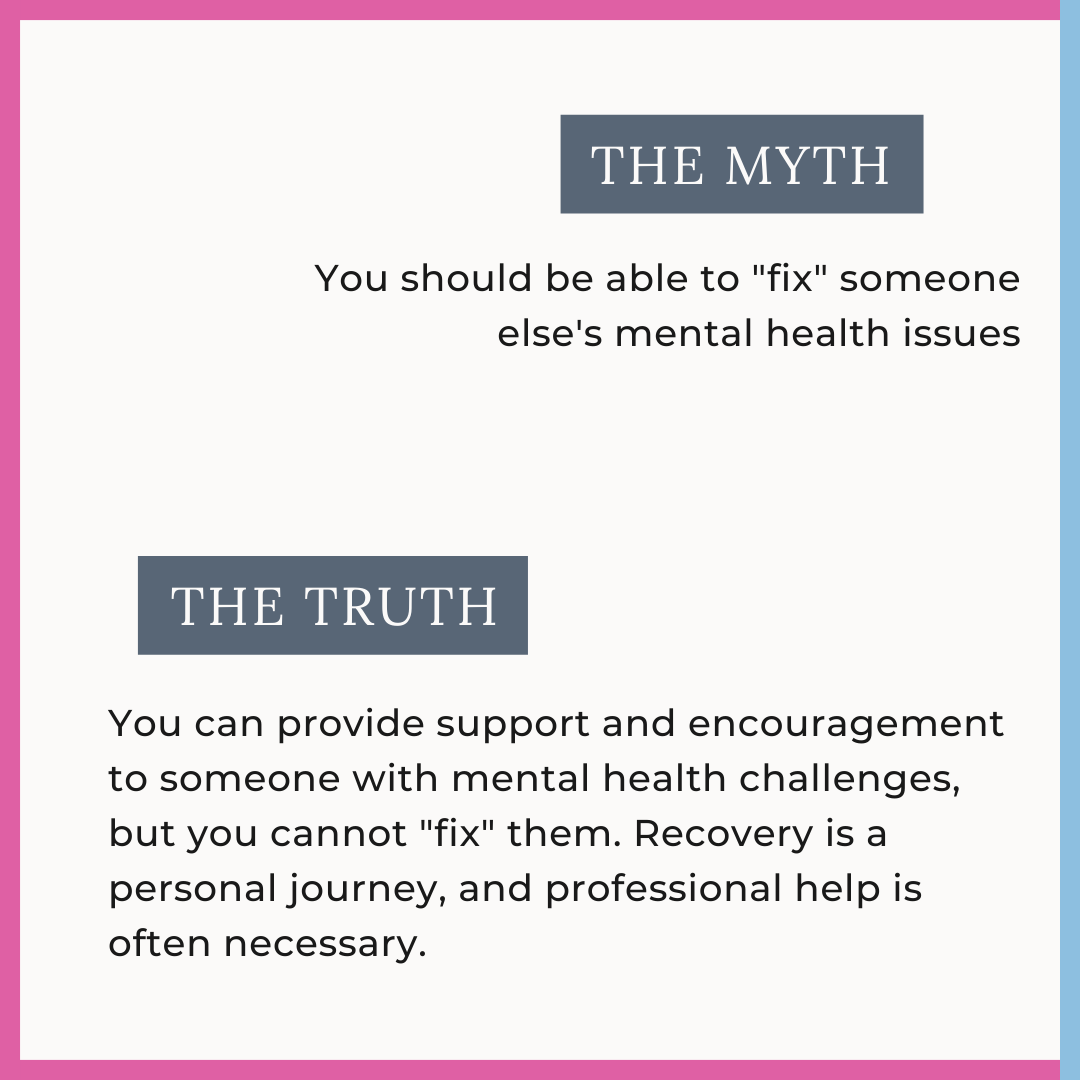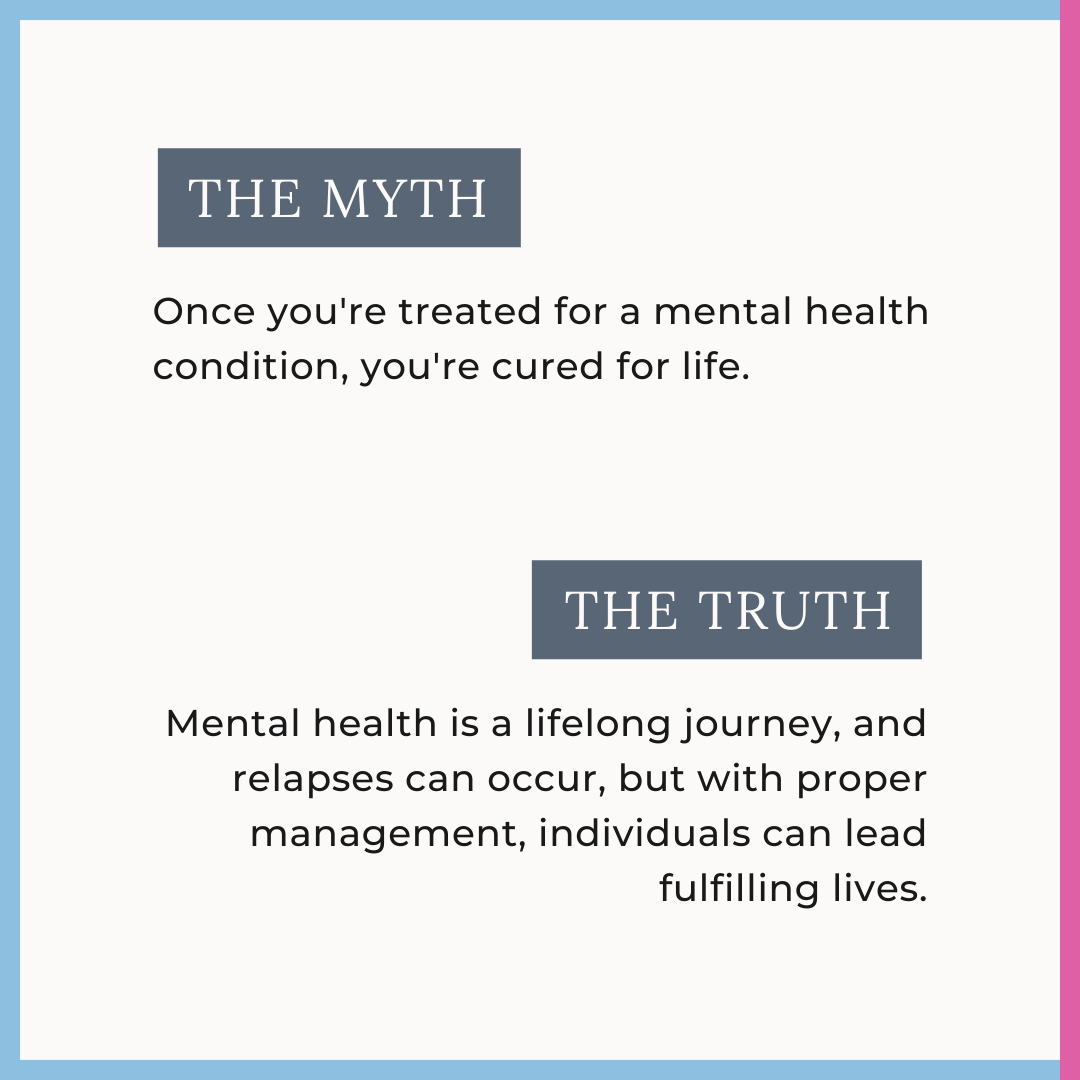Last Updated:
December 4th, 2023
Mental health is integral to our overall well-being, yet it remains one of the most misunderstood and stigmatised aspects of human health. Myths and misconceptions about mental health persist, contributing to the stigma that can prevent individuals from seeking help or understanding their own experiences.
In an era marked by growing awareness and conversation surrounding mental health, it is imperative to separate fact from fiction and dispel the persistent myths that have long shrouded this crucial aspect of human well-being.
We will unravel common misconceptions, challenge stigmatising beliefs, and shed light on the realities of mental health, ultimately paving the way for greater empathy, support, and informed discourse.
Myth 1…

Myth 2…

Myth 3…

Myth 4…

Myth 5…

The dangers of misinformation
Thanks to the rapid dissemination of information through the internet and social media, myths and misconceptions about mental health have proliferated, often with devastating consequences. This section sheds light on the perilous repercussions of mental health misinformation.
- Stigmatisation and discrimination: False beliefs, stereotypes, and unfounded fears can lead individuals to view those with mental health challenges as “dangerous,” “unpredictable,” or “incompetent.” This stigma can prevent people from seeking help, isolating them and exacerbating their conditions.
- Delayed or inadequate treatment: Inaccurate information about mental health can mislead individuals into believing that their symptoms are normal or not severe enough to warrant professional help. This delay in seeking treatment can allow conditions to worsen and become more challenging to treat. It may also result in individuals seeking ineffective or potentially harmful alternative treatments.
- Exacerbating mental health symptoms: Misinformation can perpetuate harmful coping strategies or self-treatment methods that worsen mental health symptoms.
- Self-stigma and shame: When individuals internalise the misinformation surrounding mental health, they may develop self-stigma and feelings of shame. This self-blame can prevent them from seeking help, hinder recovery, and negatively impact their self-esteem and overall well-being.
- Interference with adequate support systems: Misinformation can disrupt the support systems crucial for individuals with mental health challenges. Friends, family members, and colleagues with misconceptions may inadvertently offer unhelpful advice or display unsupportive attitudes, making it difficult for those needing the required assistance.
Combating mental health stigma
Exploring the complexities of mental health and challenging the preconceived notions that hinder progress can pave the way for a more informed and compassionate perspective. Here are some effective strategies to combat mental health stigma:
- The universality of mental health: It’s essential to acknowledge that mental health is a universal concern, affecting people of all backgrounds and walks of life. Rather than isolating it as an issue that only some people face, recognising its universal nature helps foster a sense of shared responsibility.
- The multifaceted nature of mental health: Mental health encompasses a wide range of conditions and experiences, from anxiety and depression to stress and grief. These conditions are not simply black and white; they exist on a spectrum and can vary greatly in severity.
- The science: Science and research have made significant strides in understanding the biological and neurological aspects of mental health. Shedding light on the science behind mental health dispels the notion that it’s solely a matter of willpower or personal choice.
- The power of understanding: Emphasising the importance of support networks and understanding can be a powerful way to combat stigma. When individuals feel supported and heard, they are more likely to seek help and engage in treatment.
- Language matters: The words we use to discuss mental health play a significant role in shaping perceptions. Encouraging respectful and non-stigmatising language can contribute to a more empathetic discourse.
- Positive narratives: Sharing stories of individuals who have overcome mental health challenges can help challenge negative stereotypes and inspire hope. These narratives highlight the resilience and strength that many people possess.
- The road to wellness: It’s crucial to stress that mental health is not static; it’s a journey. Promoting the idea that recovery and improvement are possible can encourage individuals to seek help and support.
Understanding and addressing mental health misconceptions are pivotal in our quest to foster a more inclusive, empathetic, and informed society. By reframing the conversation and focusing on the universality of mental health, its multifaceted nature, the scientific underpinnings, and the power of support, we can break down barriers and pave the way for a brighter, more compassionate future where everyone’s mental health is valued and supported.

